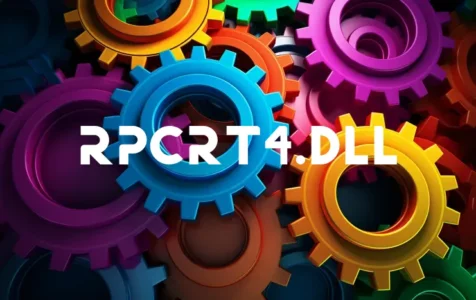The rpcrt4.dll is an essential system file for the Windows Operating System, serving a critical role in the functioning of network and Internet communication between devices and applications. Standing for “Remote Procedure Call Runtime,” it is integral to the procedures allowing different software components to communicate over a network. Distributed as part of Microsoft’s Windows software package, this DLL is a fundamental component ensuring that applications relying on remote procedure calls operate smoothly.
Is rpcrt4.dll Safe to Run? Can It Be a Virus or Malware?
As a legitimate Windows system file, rpcrt4.dll itself is safe to run and is not inherently malicious. However, due to its importance in system operations, it can sometimes be targeted by malware. Thus, it’s crucial to ensure that the file is located in the correct System32 directory of Windows and not elsewhere, which could be indicative of a security threat. If you have any doubts about the file, running a trusted antivirus scan is advisable to rule out the possibility of infection.
Common Issues Associated with rpcrt4.dll
Despite its critical nature, the rpcrt4.dll file might sometimes lead to issues. Users have reported errors related to this DLL, such as missing or not found errors, which can occur for various reasons including corrupt downloads, faulty applications, or even due to malware. These issues often manifest when an application or the system attempts to use the file, leading to error messages.
Fixing rpcrt4.dll Issues
Recover the Missing Rpcrt4.dll File
If the rpcrt4.dll file is accidentally deleted, you may first check your Recycle Bin. If the file isn’t there, you could use a file recovery program like MiniTool Power Data Recovery. Make sure to scan your system drive (usually C:) for the best chance to retrieve the lost DLL file.
Expert Tip: For smoother PC performance, consider using a PC optimization tool. It handles junk files, incorrect settings, and harmful apps. Make sure it's right for your system, and always check the EULA and Privacy Policy.
Special offer. About Outbyte, uninstall instructions, EULA, Privacy Policy.
Run a System File Checker (SFC) Scan
To address the issue of system file corruption affecting the dll, you will need to perform an SFC scan. Open Command Prompt as an administrator by typing “cmd” in the search box, right-click Command Prompt, and select “Run as administrator.” Once the Command Prompt is open, input the command `sfc /scannow` and press Enter. This scan will check for any corrupted files and attempt to repair them.
Install Windows Updates
Often, Windows updates come with fixes that can resolve DLL issues. To check for updates, navigate to ‘Settings’, select ‘Update & Security’, and then go to ‘Windows Update’. If updates are available, install them, which might provide the necessary fix for your dll errors.
System Restore
If the issues started appearing after recent changes or updates, using System Restore to revert your system back to a point when everything was working correctly can be a solution. This action can undo recent system changes that may have affected the rpcrt4.dll file without affecting your personal files.
Reinstall the Problematic Application
If a specific program is causing rpcrt4.dll errors, reinstalling said application may rectify the problem. This process can replace missing files or correct any errors during the initial installation that may have led to the dll-related issue.
User Experiences and Troubleshooter Participation
In community discussions such as those on the Microsoft forum, users share their experiences with rpcrt4.dll errors. One example involved users encountering errors during startup or after OS updates. In another case, an issue with the wazuh-agent gave rise to rpcrt4.dll problems, which were resolved through well-documented troubleshooting efforts, including disabling certain features, updating agents, and testing changes to the application environment. Active engagement in communities paired with detailed logs often leads to collaborative problem-solving.
For examples of how community discussions can aid in resolving similar issues, you can explore forums such as the Microsoft Community. Here, users and tech specialists share experiences and advice, offering a wealth of knowledge when dealing with common and less frequent system errors.
In wrapping up, addressing issues related to rpcrt4.dll requires a combination of systematic troubleshooting measures, vigilance against potential security threats, and an understanding of the DLL’s role within the Windows operating system. With the right approach, most users can restore their systems to normal operation and ensure smooth communication between applications and network services.
